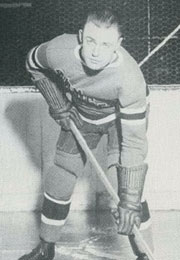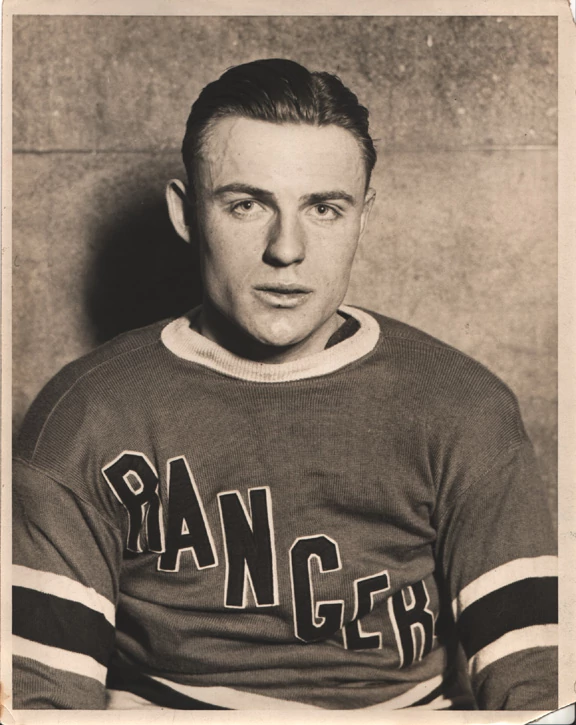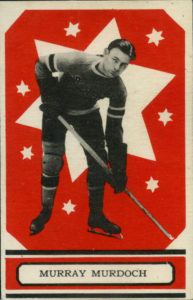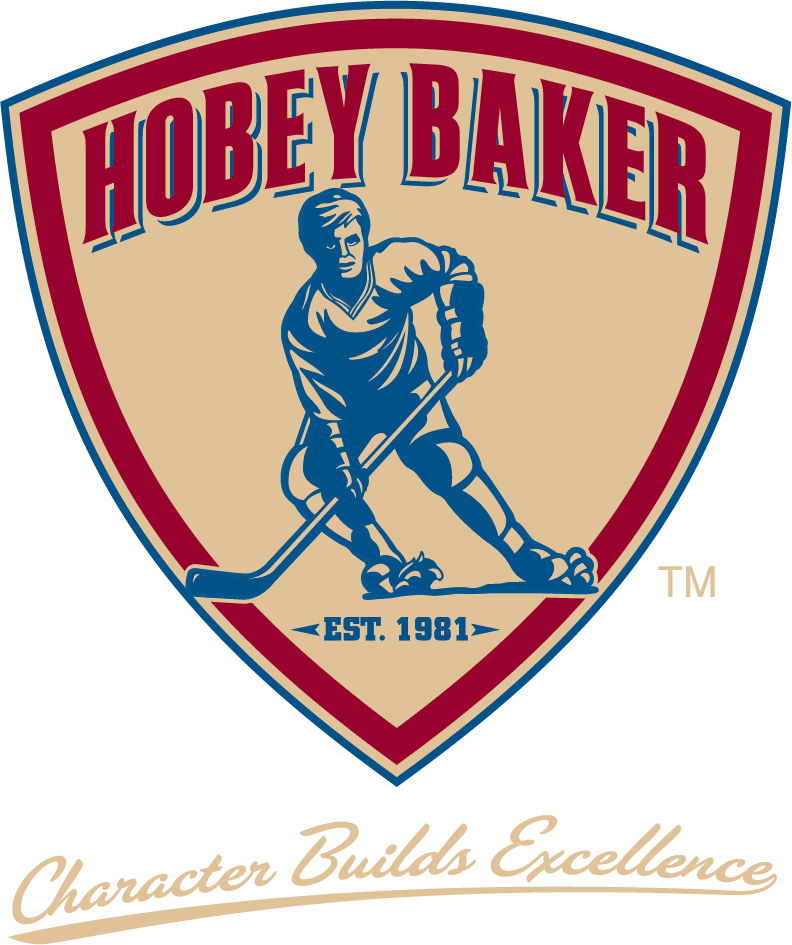J. Murray Murdoch – 1987 Legend of College Hockey

J. Murray Murdoch is an original, a pioneer. He skated in venerable arenas with natural ice surfaces; some of his comrades were also teammates of Hobey Baker. His perseverance, dedication and ideals have earned him records, honors and affection.
Murray was born in Lucknow, Ontario, in 1904. When he was five years old, his family moved to Edgertown, Alberta. While attending a one-room school — and being very bright, though this modest man says now he just had big ears — Murray absorbed enough knowledge to pass the entrance exams for St. John’s College at age 12, not 15, as was usual.
So it was off to a boarding room in Winnipeg. As a school boy, he competed in hockey, tennis, baseball and captained a championship football team. Moving on to the University of Manitoba, his hockey team won the junior championship Memorial Cup in 1923.
Murray’s professional career began with the Winnipeg Maroons in the old Central Hockey League. The schedule included such hockey cradles as Minneapolis, St. Paul, Eveleth, Hibbing and Duluth. The opponents were the likes of Moose Goheen and Ching Johnson. Murray particularly liked playing in the big old arena in the Twin Cities. He “loved to skate, and there was enough room behind the goals to play another game.”
In 1926, Connie Smythe signed him to play with a new club just being organized in the States, the New York Rangers. This original Ranger continued to suit up in the #9 Blue Shirt for 600 consecutive exhibition, regular season and play-off games, including two Stanley Cup victories. That incredible playing streak made him the NHL’s first Iron Man. It was a record that stood until 1959.
“I was in the line-up for the first game my team played. And I was in the line¬up for the same team for my last game.” He says this proudly — but not just from self-pride, but with pride in his team.
Instilling pride in team, and dedication to team play along with sound fundamentals were the hallmarks of his college coaching career at Yale University. Murray took the top job at Yale in 1938 after helping out the Rangers for one year as assistant coach and captain of their farm team, the Philadelphia Ramblers, in the American Hockey League.
In his 27 years at the helm, the Elis compiled a record of 265 wins, 235 losses and 19 ties including two Ivy League and seven “Big Three” (Yale, Princeton, Harvard) titles.


Following World War II, Coach Murdoch foresaw the growth of college hockey. To help speed this to reality, he was not only an outspoken proponent of youth hockey, he served as director of New Haven’s Pee Wees League for ten years. (He expressed delight that two young men “from my backyard,” Craig Janney and Brian Leetch, are 1987 Hobey Baker finalists.)
On the national level, when the American College Hockey Coaches Association was formed in 1947, Coach Murdoch was its first President. “We organized the group, first, to establish an NCAA Hockey Tournament and, second, to encourage camaraderie among college coaches in hopes this would be reflected by their teams on the ice.” Murray later chaired the NCAA Hockey Rules Committee.
Upon retiring from the head coaching job at Yale in 1965, it is not surprising that he remained on for five years as assistant business manager. He had often found off-season employment as an actuary on Wall Street during his Ranger days. He jokes that his New York teammates would always turn to him during play-offs to ask, “what do you think our cut will be?” The “team mathematician” would eye the crowd, make an estimate, quickly multiply by admission rates and deduct a percentage in his head, and give an answer.
This devoted friend of college hockey and pioneer of the sport has received some well-deserved honors. For one, Yale’s Most Valuable Player award is given in his name. And, when asked about the Gold Key Award, Connecticut’s sports writers’ highest honor, which he received in 1967, this self-effacing gentleman just laughed and said, “Oh, if you’re smart you learn to get along with the writers.”
Probably the most appropriate award was his 1974 Lester Patrick Memorial Trophy for outstanding service to hockey in the United States. The award is, of course, named for the man for whom he toiled eleven seasons in the National Hockey League but with whom he shared a mutual friendship and respect. Lester Patrick described his Iron Man this way: “Murray was a real club man all the way. He was an extremely potent defensive forward who gave his best at all times. Briefly, Murray was an ideal major leaguer in every department of the game.” We are certain Mr. Patrick would have agreed that Murray Murdoch was a “major leaguer” behind the bench and beyond the arena as well.
